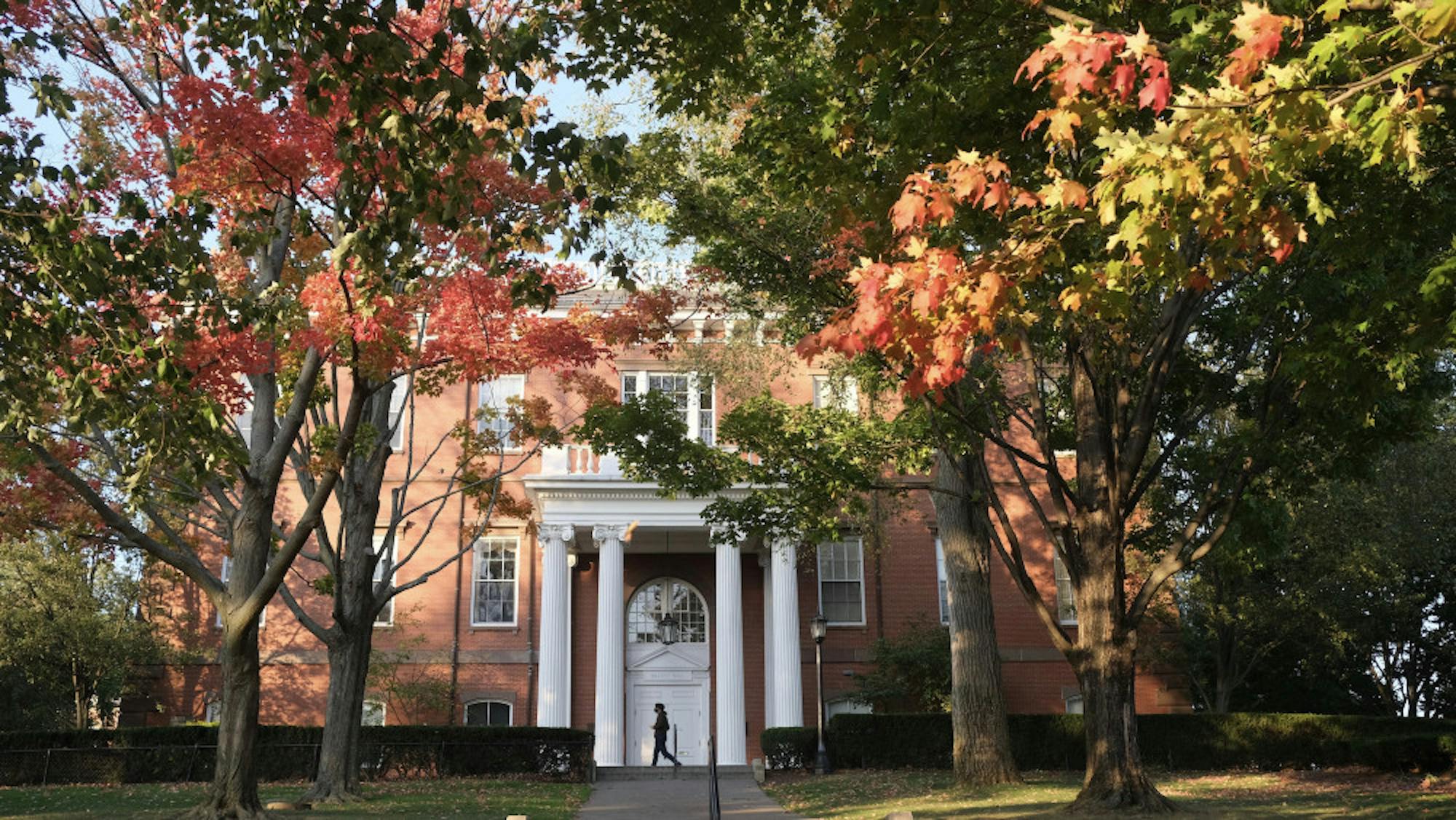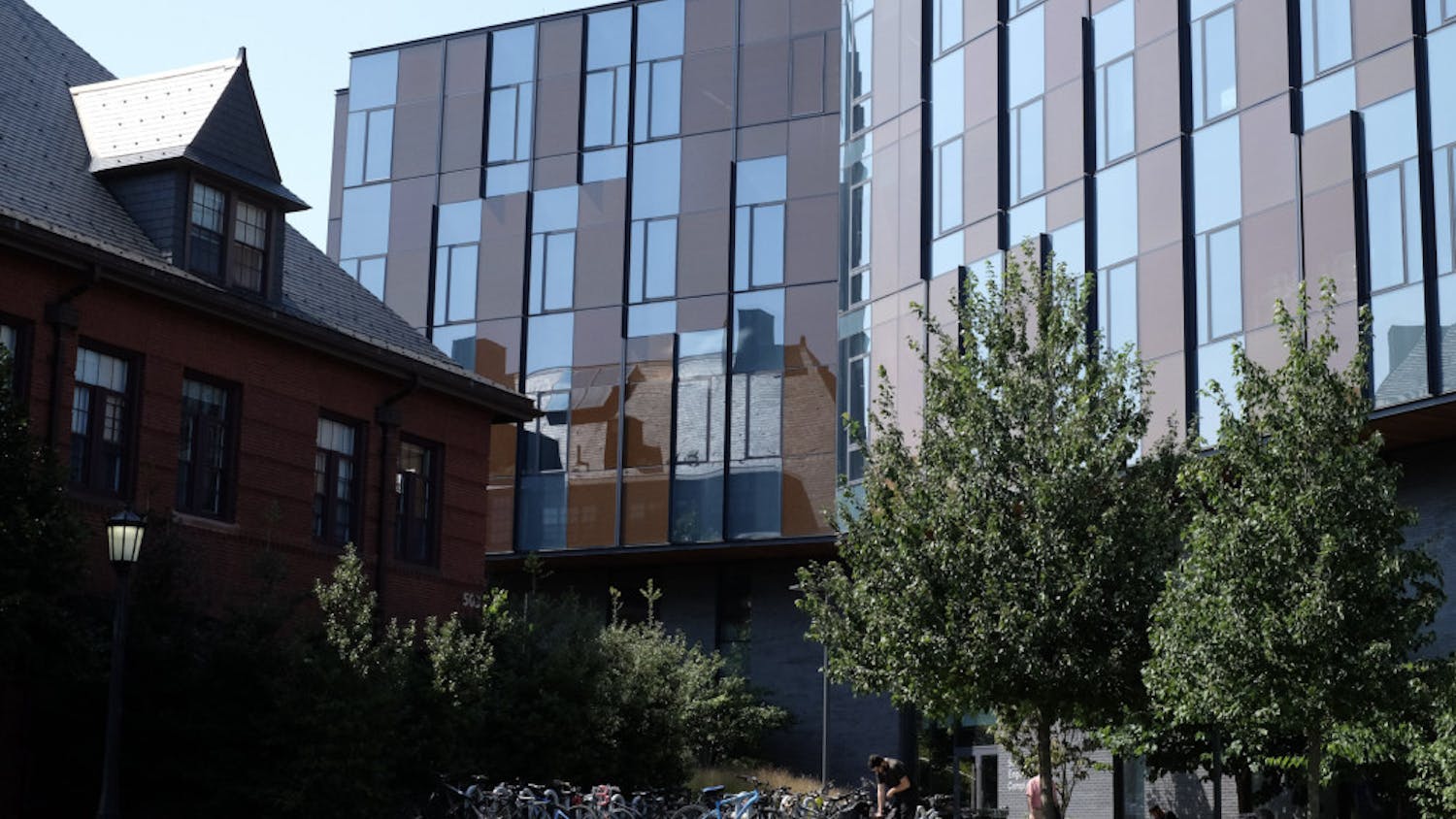Tufts Election Commission (ECOM) appealed to members of the Tufts Community Union (TCU) Senate and Judiciary on Oct. 6 to suspend a portion of their bylaws that would require them to fill seat vacancies via election, and instead allow them to appoint students to these positions.
Currently, six seats are vacated across TCU Senate and Judiciary, according to the ECOMwebsite. The following positions are vacant: two Class of 2022 Senate seats, two Community Senate seats — a women's community senator seat and an international community senator seat — and two Judiciary seats.
According to ECOM bylaws, any vacant seat must be filled by special election no more than 15 days after an election has occurred. With the most recent election being held on Oct. 1 for the Class of 2024 Senate positions, according to their current bylaws, ECOM would be required to hold a special election by Oct. 16.
Mark Lannigan, ECOM historian, explained that potential candidates for the currently vacant seats were permitted to run in the Oct. 1 election, and applications to run for all open positions were distributed.
“It was going to be a special election [running concurrently with] the freshman Senate elections, and we had no applicants for any of those positions,” Lannigan, a sophomore, said.
ECOM is concerned that students' lack of interest to run for an open position in the Oct. 1 electionwill correlate with a low interest level in the bylaw-required election on Oct. 16.
“We’re thinking that if there was no interest before, when we were actually holding an election, there’s not going to be interest within the period that the ECOM bylaws lay out, which is that we have to have another election within 15 days,” Lannigan said. “We just don’t think we could get the turnout that would make it a successful election.”
ECOM plans to work with TCU Senate and Judiciary and the community centers to fill the vacant seats, with the ultimate goal of replacing the appointees in a special election tentatively scheduled for December.
“We’re committed to going through the Women’s Center and the International Center to choose the community senator seats, and we’re going to be working with the Senate and the Judiciary as well,” Lannigan said. “Not so that they can choose their own members because that’s not what we’re in the business of doing, but we’re going to work with them so that it’s done in the most ethical way possible.”
TCU Judiciary Chair Holden Dahlerbruch underlined the urgency of filling the currently vacant seats.
“For the two open community senator seats and the two open judiciary seats, they need to be filled,” Dahlerbruch, a sophomore, wrote in an email to the Daily. “For the sake of getting members in a timely fashion, appointment seems like a logical process. Of course, I would prefer an election but due to the current impacts that COVID-19 is having on campus, an appointment process is convenient, timely, and logical.”
Dahlerbruch explained that the lack of a full Judiciary drastically limits its function.
“As a voting board, we like to meet quorum for most votes and our quorum is set at five or a majority of acting members,” Dahlerbruch said. “In order to vote, we want to increase our members so full attendance is not always required to vote in the case someone misses a meeting.”
Dahlerbruch noted, however, that if ECOM fills the vacancies on the Judiciary by appointment, he believes that the Judiciary should not be involved.
“Throughout this process, I am encouraging ECOM to keep the Judiciary away from impacting the decision of who is appointed,” Dahlerbruch said. “The student body most times gets to choose who is elected to the J, so we, as members of the J, get no say on who is added ... I don’t want the J to have any impact in the appointment process for our open seats.”
Lannigan is confident that there will be an election to fill the vacant seats, once ECOM expects a wider voter turnout. He said that a little over a week is not enough time for candidates to go through an effective electoral process.
"I think the bylaws themselves don’t give us enough time to put together an entire election, especially when we can’t do things in person and everything has to be done digitally and it just makes advertising a lot more difficult,” Lannigan said.
According to Dahlerbruch, articles IV.A and IV.I of the bylaw suspension did not pass, meaning that senators for the Class of 2022 will not be appointed, and for the other positions where selection by appointment remains an option, those selected must be a full-time undergraduate student in good academic standing.
ECOM wrote in an email to the Daily yesterday that they will not be proceeding with the suspension of bylaws until at least Wednesday, in an effort to maintain transparency.
For this bylaw suspension to pass, ECOM requires the approval of TCU Senate President Sarah Wiener, TCU Senate Vice President Grant Gebetsberger, TCU Judiciary Chair Holden Dahlerbruch, acting TCU Judiciary Vice Chair Zach Ferretti, the majority of the Senate Executive Board and the majority of the Judiciary.






